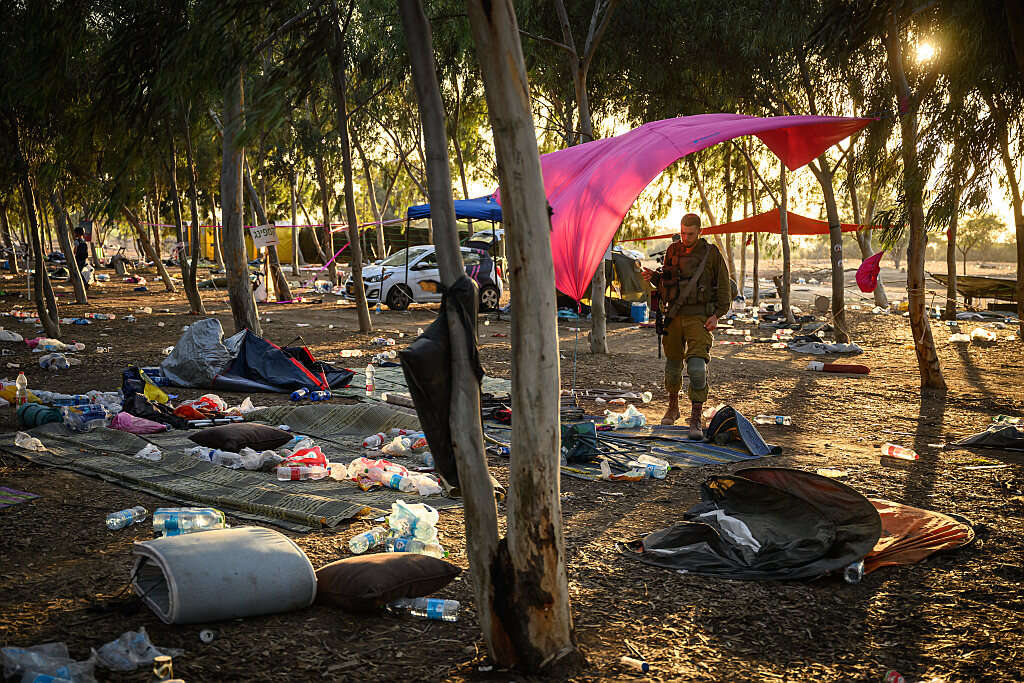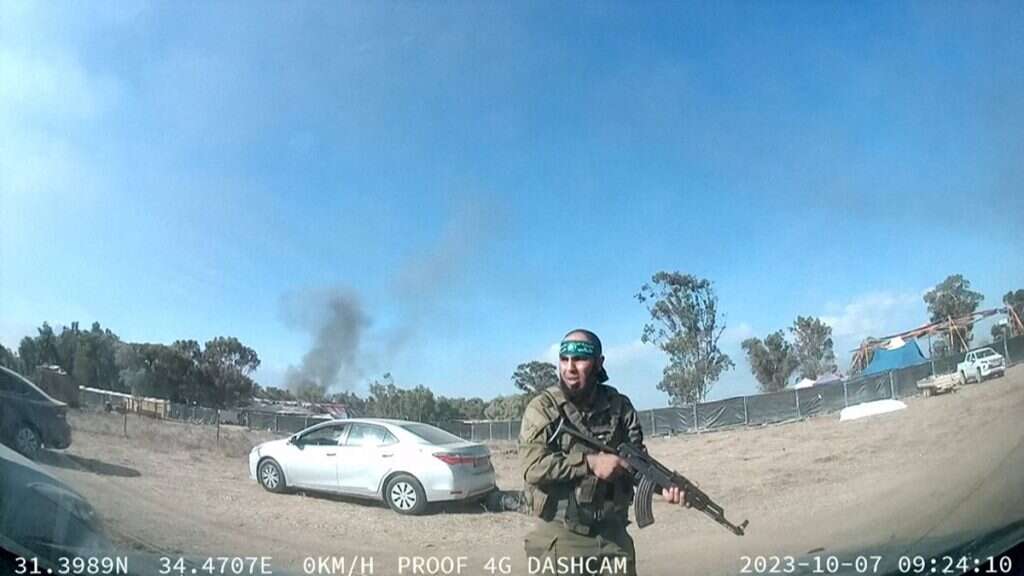In a powerful interview with the Wall Street Journal, former hostage Omer Wenkert detailed the brutal beatings and psychological torture he endured during 505 days of Hamas captivity in Gaza as part of his ongoing advocacy for a deal to secure the release of the remaining hostages. Wenkert, who was released in February during a temporary ceasefire, described to the Wall Street Journal how he survived isolation, starvation, and regular abuse while being held underground by Hamas.
Wenkert was kidnapped from the Nova music festival near the Gaza border on Oct. 7, 2023. After rockets sent festivalgoers running, he sought shelter with about 40 others in a bomb shelter. Only 12 would survive after Hamas terrorists threw grenades inside and poured gasoline, threatening to burn everyone alive. "They're burning us!" someone screamed as the shelter grew hotter, Wenkert recalled.
He escaped the flames by crawling over dead bodies, only to be captured immediately outside. He wet his pants and was stripped to his underwear, then thrown into a white Toyota pickup truck, according to his account to the Wall Street Journal. Once in Gaza, he was taken underground into Hamas tunnels, where he would remain for the entire 505 days of his captivity.

Wenkert's first days were marked by repeated beatings and brief moments of consciousness. "I remember on the first day someone hovering over me and a punch to the face, losing consciousness, and then another person waking you, another one stepping on you, losing consciousness, and another one waking you," he said.
For approximately half his captivity – 197 days by his own count – Wenkert was completely isolated in a narrow concrete corridor with a pit toilet covered with sand after each use. "I was sure that after two weeks I would completely lose my mind," he said. To maintain his sanity, he walked for hours daily in the 30-40 foot corridor, spoke to himself, sang Israeli rap songs, and recited Psalm 23 despite not being particularly religious.
Wenkert had nicknames for his captors, including "Tznon" (radish in Hebrew) for one particularly brutal guard. About eight months into his captivity, Wenkert shared, this guard became increasingly violent. In one incident, Tznon kicked Wenkert three times in his head and twice in his back as punishment for looking at him. The next day, the captor forced him to do what felt like hundreds of push-ups, sit-ups, and squats until he collapsed from exhaustion, then spat on him and screamed: "Say you are a son of a b****, say you are a dog."
In another brutal episode, when Wenkert lifted his head thinking his captor had left, Tznon struck him with a crowbar, beating his head, shoulders, and legs. Wenkert later learned the violence was triggered after an Israeli military operation killed his captor's father.

In May, when Israel entered Rafah, the beatings intensified, and Wenkert's mental state deteriorated significantly. His isolation ended when three other hostages – Evyatar David (24), Guy Gilboa Dalal (23), and recently released Tal Shoham (40) – were brought to his location. "If they wouldn't have brought them down, I would have ended up in a catatonic state," Wenkert told the Wall Street Journal.
The hostages convinced their captors to give them a deck of cards and took turns exercising, as the tunnel air became too hot if they all moved simultaneously. However, by October, when Israel restricted aid to Gaza, their food rations were drastically reduced. "David and Shoham became so weak that they couldn't move," Wenkert said, describing how their legs turned blue and yellow from malnutrition.
According to his account, Wenkert's greatest fear was an attempted rescue by Israeli forces, as his captors had placed a bomb in their shelter.

When a ceasefire appeared imminent in early 2024, the hostages' food suddenly increased, with more than 5 pounds of rice daily and even chocolate – something Wenkert hadn't seen in over a year. Despite severe stomach pain, he couldn't stop himself from gorging after months of near starvation.
Before his release, Wenkert was forced to participate in propaganda videos after being shown the destruction in Gaza. "It's not easy to see something like that, just like it wasn't easy to see the sights in the bomb shelter [on Oct. 7]," he said.
Wenkert learned he and Shoham would be released – but David and Dalal would remain in Gaza. The four men had barely two minutes to say goodbye, embracing the entire time. "I promised them I would do everything I can to make sure they get home as soon as possible," Wenkert recalled. During his release in Nuseirat, he glimpsed David and Dalal in a nearby car, a moment that continues to haunt him. Hamas later released a propaganda video featuring the two hostages, watching their friends being released from captivity before going back underground.

Now free but still recovering physically and psychologically, Wenkert is focused on advocating for the remaining hostages. "The top priority is the return of the hostages alone – not the destruction of Hamas, not to destroy infrastructure, not nonsense like that," he said, directly challenging Israeli Prime Minister Benjamin Netanyahu's assertion that "military pressure is a necessary condition for releasing more hostages."
"What reason is there that I should be here and Evyatar and Guy aren't with me right now?" he added. "The return of the hostages – this is where the success of the return to war will be measured for me," he concluded.




